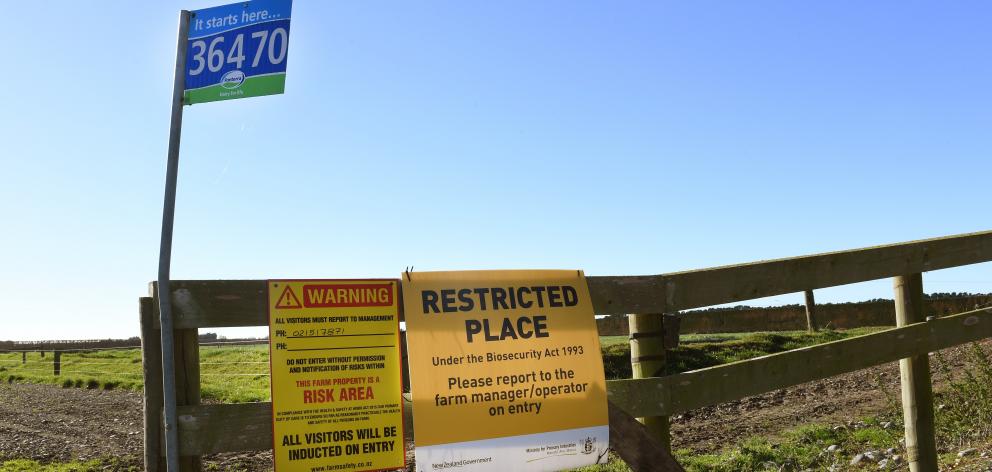
A two-year study, announced last week, will focus on the emotional, social and psychological impacts of the bacterial cattle disease on farmers and farming communities in Otago and Southland.
It does not take a crystal ball to forecast that the resulting findings will show massive impacts on those affected.
Studies from the 2001 foot and mouth outbreak in the United Kingdom showed the outbreak was ``not just an animal tragedy but also a human one'', one of the co-ordinators of the project, Dr Fiona Doolan-Noble, said.
And that applied to Mycoplasma bovis. This disease - first detected on a South Canterbury dairy farm in July 2017 - has had massive ramifications for those with the misfortune to be caught up in it.
It has not just been the whopping animal toll - more than 150,000 cattle will be slaughtered in the bid to eradicate the disease from New Zealand's shores.
There have been so many heartbreaking stories and anecdotal evidence of the human toll; of years of hard work loaded on to stock trucks to be sent away to slaughter; of rumour mills and gossip and "demonising'' of people that have become part of the testing process; and of unbearable stress levels.
Talk to affected farmers and the high level of stress has been palpably obvious as they describe the devastating impact and the often cited frustrations of dealing with the Ministry for Primary Industries.
For some, it meant the loss of their businesses. For some, it has led to major health issues.
One former sharemilking couple were forced to sell anything they could, including household items, to pay debts, and had to endure the gut-wrenching sight of the cattle in their charge being dispatched for slaughter, including pet cows.
They spent time living in a leaking caravan in Australia and experienced mental health issues after losing their home and jobs.
And it has not just been those who have been directly affected by the slaughter of their animals, but also those who have been a "by-product'' - their businesses affected by virtue of the area that they lived in - taking a hit again through no fault of their own.
This disease has hit farmers but has also had a major impact on wider rural communities.
Foot-and-mouth was contained within seven months but Mycoplasma bovis might take years to eradicate, introducing further complexity.
It is good to see one of the co-ordinators of the study is well-respected Winton-based VetSouth director Mark Bryan.
With a practical and no-nonsense approach, he has first-hand experience of Mycoplasma bovis, working in the district where it was believed the disease first took hold.
The UK research on foot-and-mouth identified feelings of distress and bereavement, concerns of a new disaster, loss of faith in authority and control systems and annoyance at the undermining of local knowledge. All of those will likely be highlighted in the Mycoplasma bovis study.
Those behind the study hope it will help inform the Government's management of the current outbreak and add to the limited body of research, aiding future decision-making in exotic disease responses. Let's hope this is the last time such a response needs to be made.












